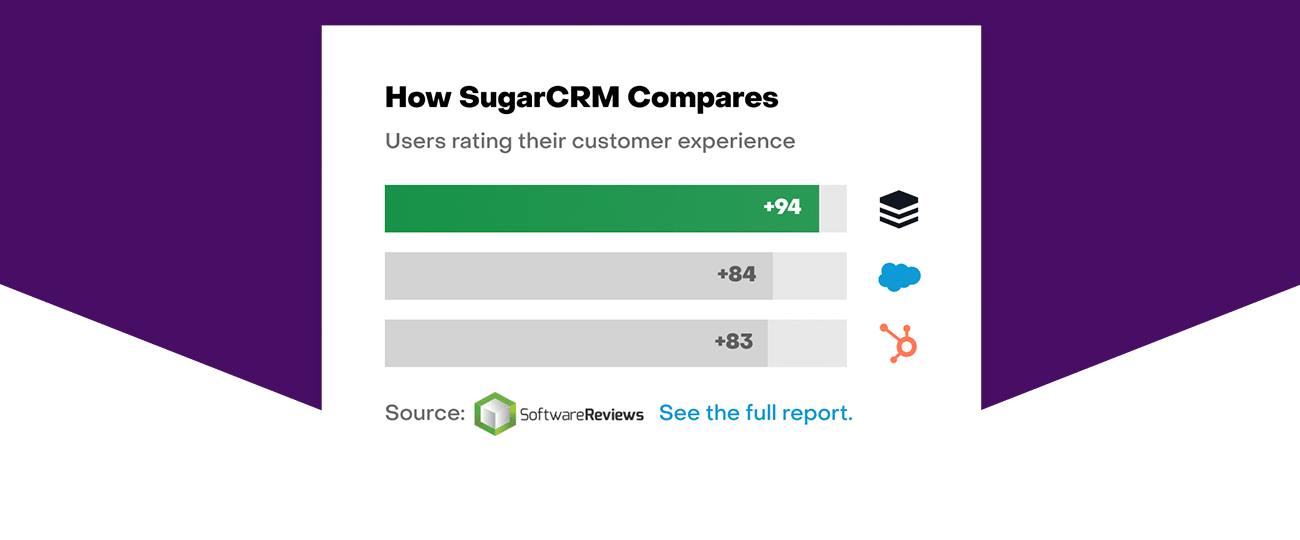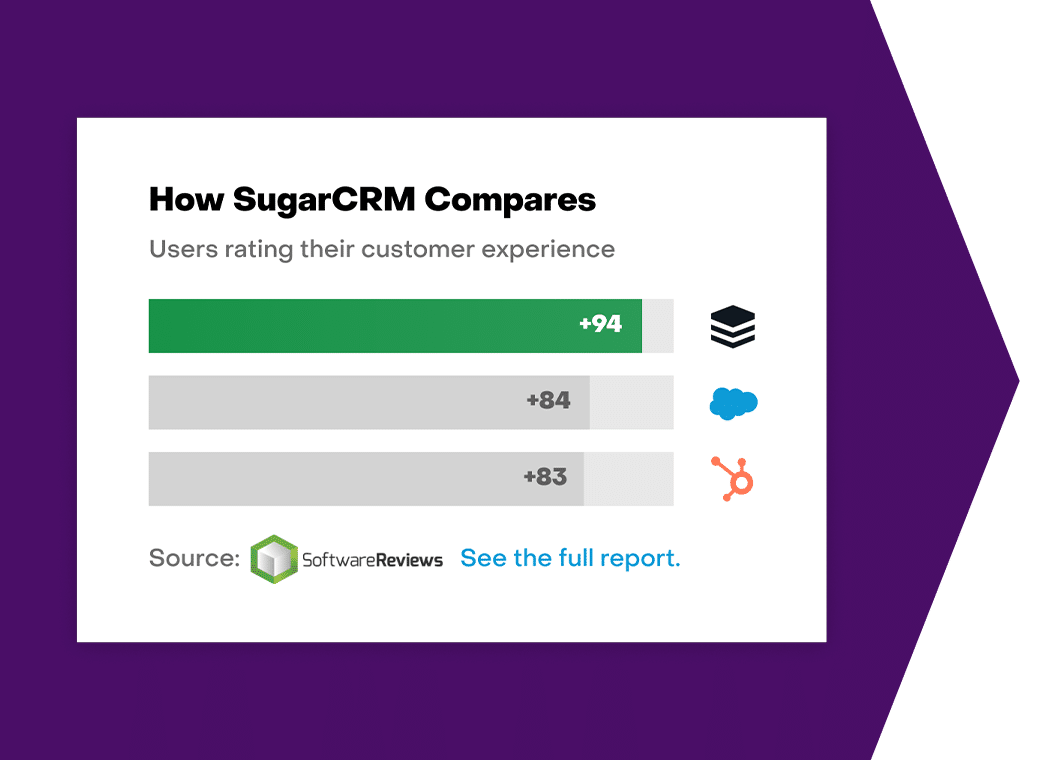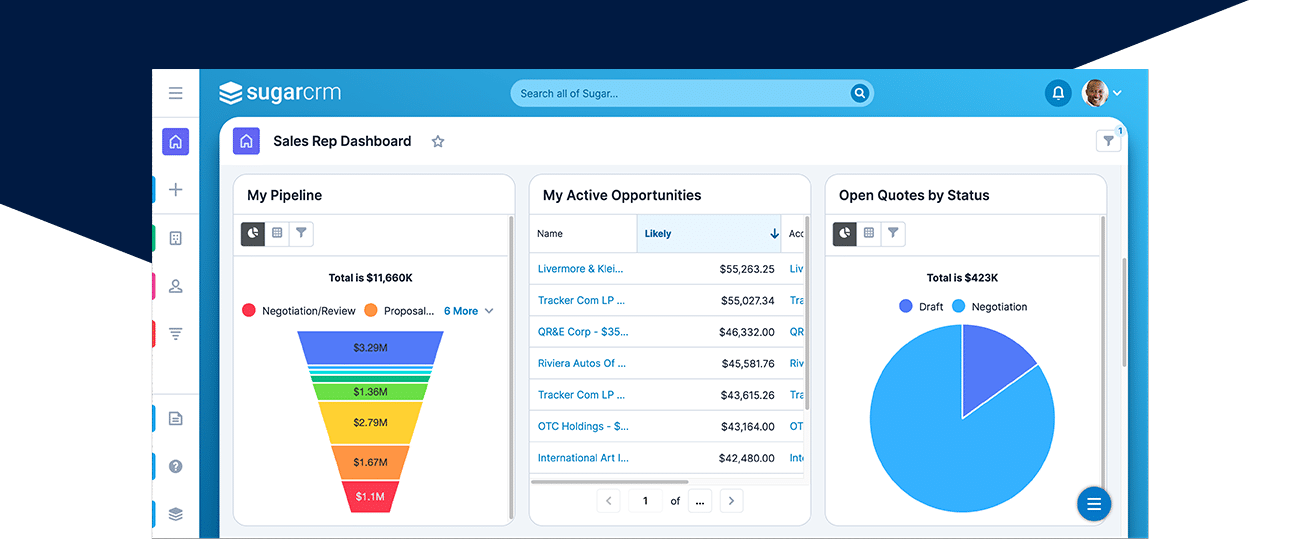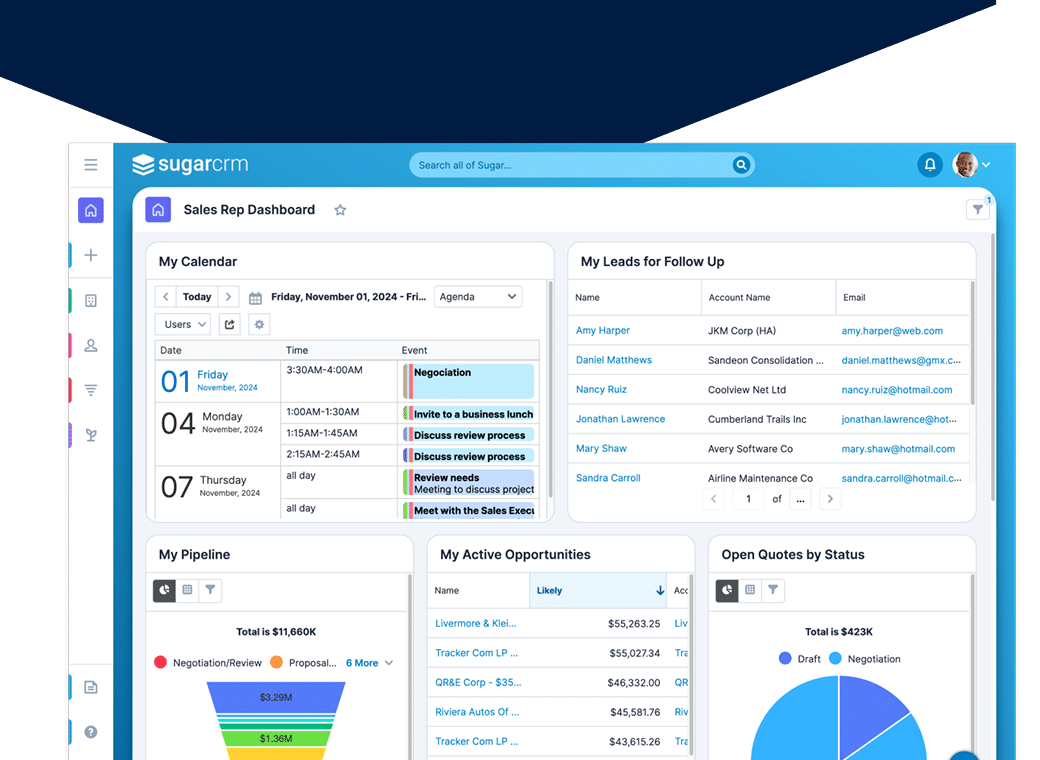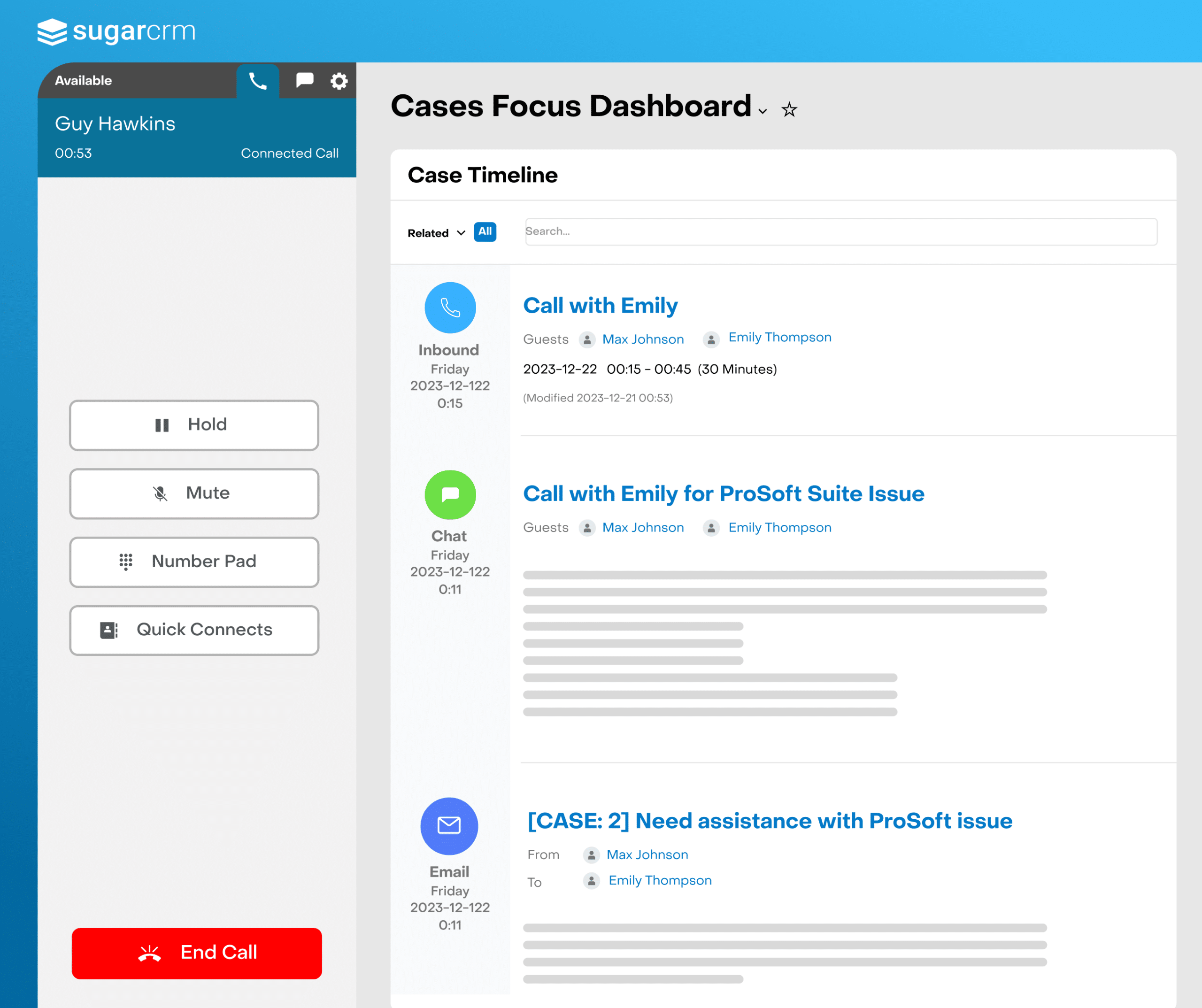The Future of CRM Software: 4 Trends Sales Leaders Will be Seeing in 2024 and Beyond
CRM is undergoing a significant shift, driven by advances in technology and changing business dynamics. The integration of AI and machine learning is revolutionizing how businesses manage customer relationships because of its ability to enable CRM software systems to analyze data on a larger scale, providing valuable insights for personalized and proactive customer engagement.
As we analyze the CRM trends predictions for 2024, it’s clear that several factors set this year apart from previous ones. The new 2024 State of CRM Report from SugarCRM is all about that—offering a path forward. Read on to see some of our key findings from 800+ sales, marketing, service, and IT leaders around the world.
Here’s a comparative look at what distinguishes 2024 CRM trends as we learn from the past and prepare for the future:
CRM Trends for 2024
CRM is Your Hub for Building Better Customer Relationships
60% of surveyed leaders reported relying on their CRM as their centralized communication hub for nurturing customers.
In the digital age, where businesses interact with customers across various channels, CRM consolidates crucial data and insights into a unified platform. By capturing and organizing customer information, interactions, and preferences, CRM enables businesses to gain a comprehensive understanding of their customers. Because companies can use their CRM to analyze customer behaviors, preferences, and feedback, they can now lean solely on their CRM to identify trends, forecast future demands, and strategize for growth.
This centralized repository becomes the nerve center for customer-related activities, allowing organizations to personalize their approach and tailor products or services to meet individual needs. A well-implemented CRM system allows businesses to streamline communication, track customer engagement, and anticipate needs, fostering a more meaningful and lasting connection.
Mastering the Art of Sales Automation
When asked about the most important areas of sales and marketing that CRM has helped optimize, the top three answers were pipeline visibility (37%), quality of leads (35%), and quantity of leads (31%).
CRM systems have become indispensable in mastering the art of sales automation, offering comprehensive solutions that extends beyond mere contact management. These platforms play a crucial role in lead management, sales forecasting, leveraging historical data, customer communication, and much more.
Through CRM, businesses can analyze customer behavior, identify patterns, and make data-driven projections that guide strategic decision-making. This foresight allows sales teams to allocate resources more effectively, forecast demand accurately, and align their efforts with market dynamics.
In addition to sales forecasting, CRM systems contribute significantly to the automation of sales processes. Lead management, a pivotal component of successful sales, is seamlessly handled by CRM platforms. Automation in lead scoring helps sales representatives prioritize prospects, ensuring that efforts are concentrated on leads with the highest likelihood of conversion. It also facilitates the automation of routine tasks such as sending follow-up emails and scheduling appointments. This not only saves time but also enhances consistency and reduces the margin for error in communication.
The Need for a More Configurable and Accessible CRM is Rising
The most prominent CRM challenges faced are technology integration (41%), platform feature limitations (41%), and internal knowledge and skills (37%).
Another prominent CRM trend for 2024 is the increase in demand for a more configurable and accessible Customer Relationship Management (CRM) system is on the rise as businesses increasingly recognize the importance of adaptability in a rapidly changing landscape. Organizations are seeking CRM solutions that can be easily tailored to their specific needs, allowing for swift adjustments to accommodate evolving business processes and customer demands. Accessibility is becoming a critical factor as well, with the need for user-friendly interfaces and the ability to access CRM data from various devices and locations. As businesses diversify their operations and customer interactions span multiple channels, the call for CRM systems that can seamlessly integrate with diverse platforms and offer a more intuitive user experience is growing.
The Growing Role of AI
80% of surveyed leaders report that they will turn to AI to maximize the value of their CRM platform over the next five years.
AI is instrumental in automating routine tasks, analyzing vast datasets to unearth valuable insights, and predicting customer behaviors. These capabilities empower CRM systems to offer personalized experiences, anticipate customer needs, and streamline processes for enhanced efficiency.
AI-driven chatbots and virtual assistants contribute to responsive and seamless customer interactions. The growing importance of AI in CRM is not only about operational efficiency but also about unlocking the potential for deeper customer understanding and engagement.
Omnichannel Customer Experience
One key CRM trend for 2024 is that customers expect a seamless and consistent experience across all company platforms, whether that’s social media, mobile apps, or in person. CRM systems play a critical role in creating this omnichannel experience.
To achieve this, your CRM must be omnichannel, ensuring that customer data and integrations are cohesive throughout all customer touchpoints.
CRM Mobile Apps
Having the ability to access CRMs through mobile is becoming increasingly important. Customers want to be able to access data at any time in a convenient way. Mobile CRMs allow sales reps to stay connected whilst in the field with clients. Sugar’s mobile CRM allows productivity across all devices by providing connectivity even when you aren’t at your desk.
Data Security
Customer Relationship Management software is often a target for cyber attacks. Businesses expect CRMs to have the right measures in place to keep data analytics safe. In 2024 and beyond, companies expect their CRMs to comply with all relevant security regulations. SugarCRM is secure and maintains a privacy compliance program which includes GDPR, CCPA and the Data Privacy Framework. SugarCRM is also ISO 27001 certified.
Industry Specific CRM
Finally, another key CRM trend for 2024 is the switch to more industry-specific CRM software. Industries including insurance, banking, manufacturing & telecom are examples of industries that would require more tailored CRM solutions. Having a more custom solution helps businesses with specific processes streamline operations, enhance productivity and better comply with industry-specific regulations.
Closing Thoughts On The Future Of CRM
The four findings above are just the tip of the iceberg when it comes to what we’ve uncovered in our 2024 State of CRM Report.
As businesses navigate through dynamic market conditions, the importance of tailoring CRM systems to unique organizational needs becomes increasingly evident. The insights gleaned from the 2024 report serve as a roadmap for businesses aiming to invest wisely in CRM technologies that not only meet current demands but also lay a foundation for future growth and success.
We believe technology should make life easier for its users. Through extensive innovation, Sugar has differentiated itself from traditional CRMs. We are committed to strengthening predictability across all processes by providing AI-powered insights that help professionals focus on opportunities with the highest probability of conversion and the closest fit to ideal targets.
If you want to learn more about building meaningful relationships with your customers, get more insights by downloading the 2024 State of CRM Report.
Or, if you’re interested in hearing a more in-depth analysis of the report findings by industry experts, check out our on-demand webinar, 2024 State of CRM: Key Insights for Companies Investing in CRMs


